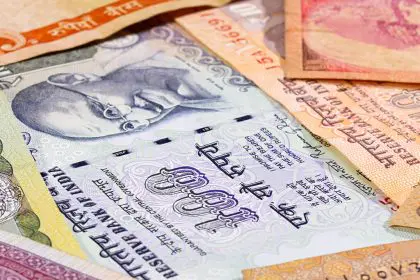Analysts believe that Bank of Japan would soon face pressure to raise interest rates and reverse from its loose monetary conditions.
On Friday, September 22, Japan’s central bank decided to leave its interest rates unchanged amid “extremely high uncertainties”, and continue with its ultra-loose policy. Following its September meeting, the Bank of Japan confirmed its decision to keep short-term interest rates at -0.1%. The central bank also set a target to limit the yield on 10-year Japanese government bonds to approximately zero, in line with expectations.
In a policy statement on Friday, the Bank of Japan said:
“With extremely high uncertainties surrounding economies and financial markets at home and abroad, the Bank will patiently continue with monetary easing, while nimbly responding to developments in economic activity and prices as well as financial conditions.”
A majority of the central banks worldwide have raised interest rates over the last two years to tame inflation. However, the Japanese central bank has been an outlier by maintaining an ultra-loose monetary position.
In part due to the policy divergence between the Bank of Japan (BOJ) and other global central banks, the Japanese yen experienced a decline of approximately 0.5%, reaching around 148.3 against the US dollar following the BOJ’s decision on Friday. Meanwhile, the yields on 10-year Japanese government bonds remained relatively stable. The yen has now depreciated by over 11% against the US dollar since the beginning of the year.
In its prior policy meeting held in July, the Bank of Japan (BOJ) adjusted its yield curve control approach to enable longer-term interest rates to align more closely with increasing inflation rates. This change marked Governor Kazuo Ueda’s first policy modification since taking office in April.
“When we can foresee inflation stably and sustainably hitting 2%, we will consider ending YCC or revising negative interest rates,” added Ueda.
Will the Bank of Japan Turn Hawkish?
The Bank of Japan might face pressure to raise interest rates earlier than anticipated if the Japanese yen depreciates beyond the 150-to-the-dollar threshold, warns Bob Michele, Global Head of Fixed Income at JPMorgan Asset Management.
This scenario could lead to higher interest rates, potentially unwinding the yen carry trade and prompting Japanese capital to flow back into the domestic bond market. Such a development could instigate market volatility, Michele cautions. Speaking to CNBC on Thursday, Michele said:
“I worry as the yield curve normalizes and rates go up, you could see a decade – or longer – of repatriation. This is the one risk I worry about.”
The Japanese yen faces renewed downward pressure following the US Federal Reserve’s decision to maintain interest rates and its indication of an expected rate hike by the end of the year. The yen has now depreciated by over 11% against the US dollar this year.
While a weaker yen can enhance the competitiveness of Japanese exports by lowering their prices, it also results in increased costs for imports. This is a significant concern, especially as many major economies grapple with persistently high inflation rates. “So, it may give them cover to start hiking rates sooner than the market’s expecting,” Michele added.
Read other market news on our website.
Bhushan is a FinTech enthusiast and holds a good flair in understanding financial markets. His interest in economics and finance draw his attention towards the new emerging Blockchain Technology and Cryptocurrency markets. He is continuously in a learning process and keeps himself motivated by sharing his acquired knowledge. In free time he reads thriller fictions novels and sometimes explore his culinary skills.




